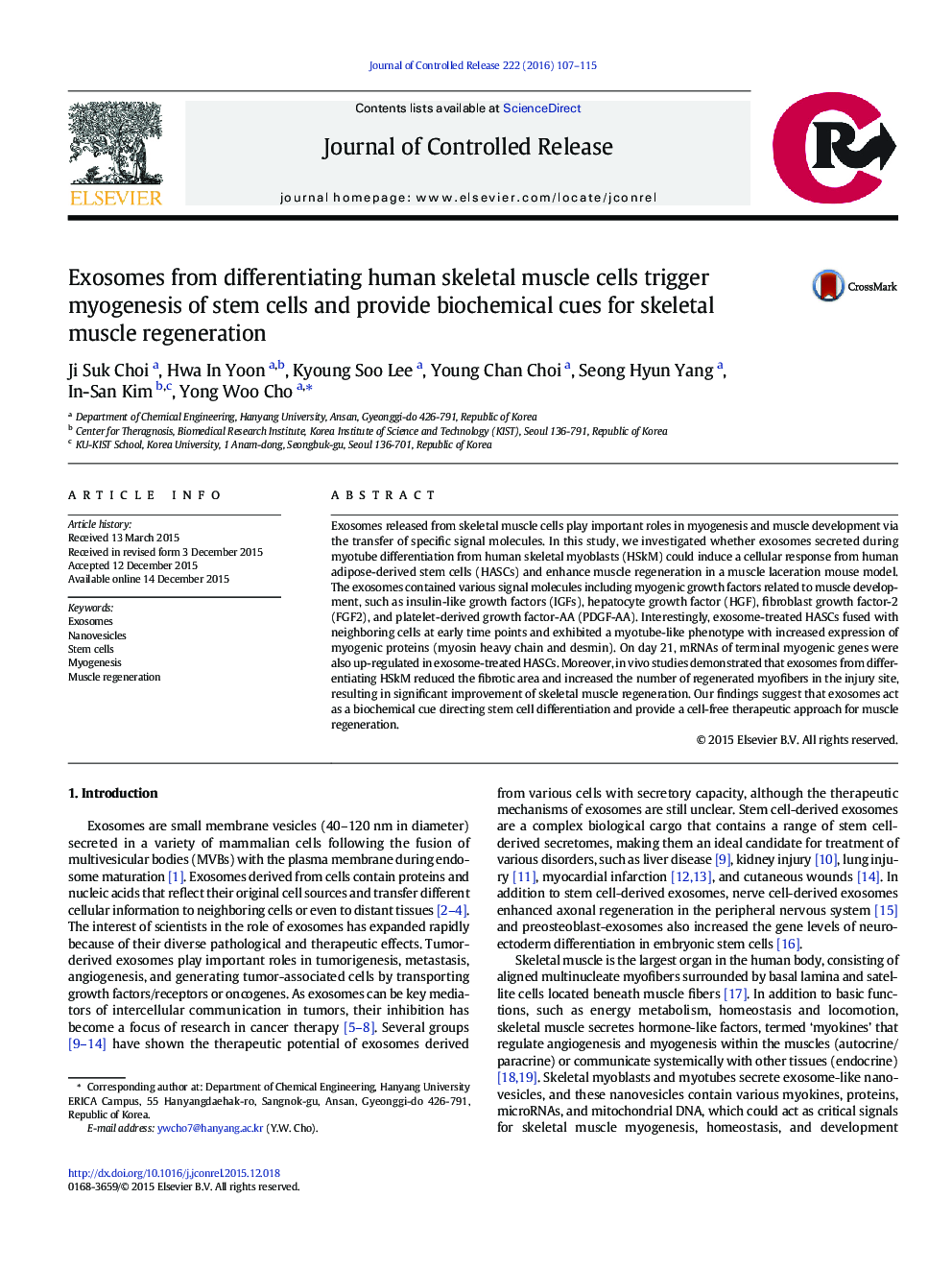| Article ID | Journal | Published Year | Pages | File Type |
|---|---|---|---|---|
| 1423606 | Journal of Controlled Release | 2016 | 9 Pages |
Exosomes released from skeletal muscle cells play important roles in myogenesis and muscle development via the transfer of specific signal molecules. In this study, we investigated whether exosomes secreted during myotube differentiation from human skeletal myoblasts (HSkM) could induce a cellular response from human adipose-derived stem cells (HASCs) and enhance muscle regeneration in a muscle laceration mouse model. The exosomes contained various signal molecules including myogenic growth factors related to muscle development, such as insulin-like growth factors (IGFs), hepatocyte growth factor (HGF), fibroblast growth factor-2 (FGF2), and platelet-derived growth factor-AA (PDGF-AA). Interestingly, exosome-treated HASCs fused with neighboring cells at early time points and exhibited a myotube-like phenotype with increased expression of myogenic proteins (myosin heavy chain and desmin). On day 21, mRNAs of terminal myogenic genes were also up-regulated in exosome-treated HASCs. Moreover, in vivo studies demonstrated that exosomes from differentiating HSkM reduced the fibrotic area and increased the number of regenerated myofibers in the injury site, resulting in significant improvement of skeletal muscle regeneration. Our findings suggest that exosomes act as a biochemical cue directing stem cell differentiation and provide a cell-free therapeutic approach for muscle regeneration.
Graphical abstractFigure optionsDownload full-size imageDownload high-quality image (281 K)Download as PowerPoint slide
